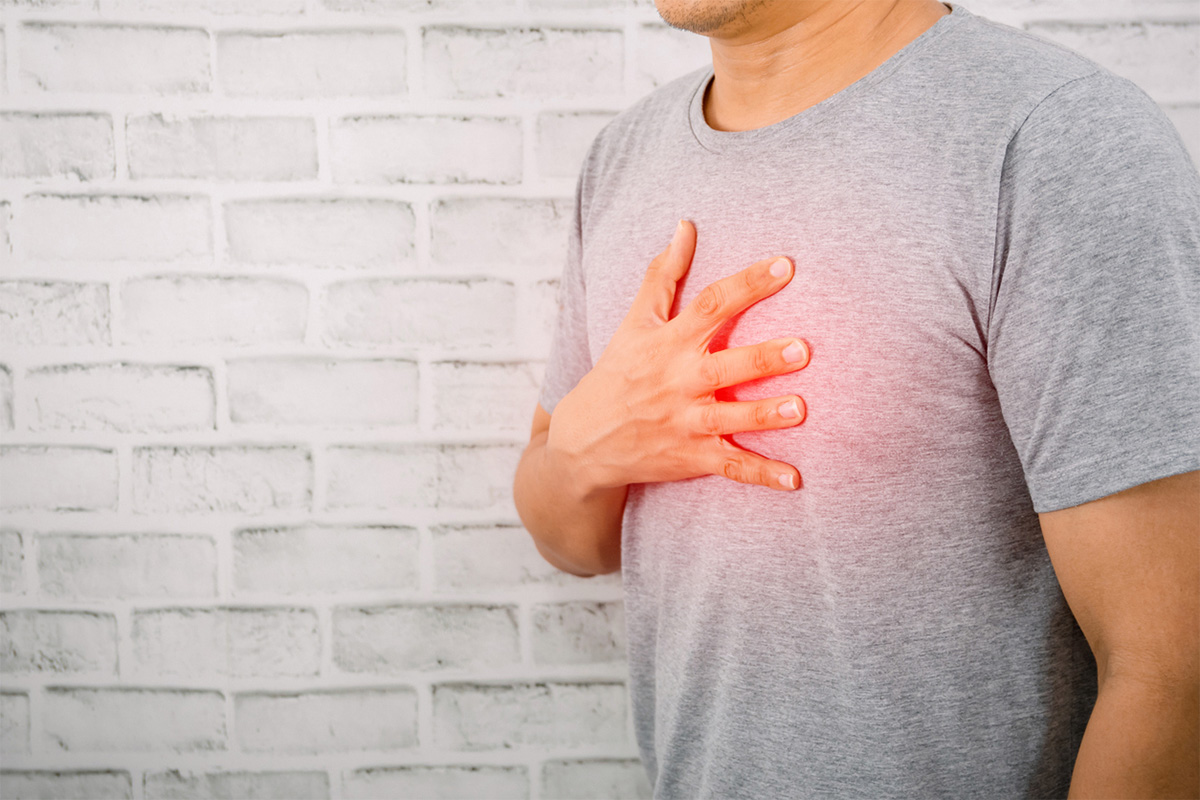Crushing chest pain and shortness of breath are classic signs of a heart attack. But what about the less obvious signs of heart disease? It doesn’t always announce itself with a bang. Are there other, more subtle signs that indicate you may have trouble with your ticker?
Heart disease is not limited to heart attacks alone, however. When talking about heart disease, it helps to picture the heart like a house, according to Meghana Rao Brito, MD, a cardiologist at Lawrence + Memorial Hospital and assistant professor of clinical medicine at Yale School of Medicine who sees patients in Waterford and Uncasville.
“There’s a wide array of possible causes of heart disease. Just like a house, the heart has walls, pipes, electricity and doors,” she said. “If the heart walls are damaged, this can lead to a cardiomyopathy. If the coronary arteries (pipes) are blocked, you may have angina, or a heart attack. If the heart valves (doors) are too tight or too floppy, you can develop stenosis or regurgitation. If you disrupt the heart’s electricity: arrhythmia or heart block.”
Symptoms may vary depending on the type of heart disease you have. Indicators that you may have heart problems include:
- Dizziness
- Changes in skin color (blue or gray tinge)
- Struggling to catch your breath while doing things that used to be easy or struggling to breathe while lying down
- Swelling in your legs, feet or ankles
- Fatigue
- Coughing and wheezing
- Rapid weight gain
- Rapid heartbeat
- Indigestion and heartburn
- Nausea and sweating
- Chest pain, the most common sign (also known as angina), can feel like a dull pressure or a sharp pressing or stabbing pain, which may or may not radiate to the jaw, neck, back or arms.
Episodes of chest pain are common with exertion prior to experiencing a heart attack. Sometimes the very first sign something is wrong with your heart health is a heart attack.
It’s especially important for women to learn to recognize the signs of heart problems, said Dr. Rao Brito, who heads up the Women's Heart and Vascular Program at Lawrence + Memorial Hospital. The program provides screening, education and treatment for women at risk for or with established heart disease, and includes close collaboration with experts in behavioral health, diabetes, exercise physiology, nutrition, obstetrics and gynecology, sleep medicine and smoking cessation.
“Heart attacks are traditionally considered to be a disease of men. However, heart disease kills more women than any other condition,” she said. Women are especially vulnerable after menopause (which generally occurs around age 50) when their levels of estrogen drop and the risk of heart attack increases.
Women often delay getting lifesaving care for heart attack symptoms, because their symptoms do not match what they think a heart attack should feel like. Only about half of women who have heart attacks first experience chest pain. Oftentimes, women write off these ‘silent’ heart attacks as indigestion, a sprained or strained muscle, fatigue, anxiety or just feeling run-down.
Some fail to take the symptoms seriously. Others feel embarrassed that a trip to the emergency room might reveal that their symptoms were caused by something other than a heart attack. Dr. Rao Brito warns women that waiting longer before getting care can lead to less favorable outcomes.
“Women need to be their own self-advocates. Base your decision to seek care on what feels normal and abnormal for you. If you are experiencing symptoms that feel new to you, call your doctor,” she said.
For both women and men, various factors increase the risk of heart disease. The most common include diabetes, excess weight, high blood pressure, high cholesterol, lack of exercise, tobacco use, untreated sleep apnea and a family history of heart disease.
Dr. Rao Brito recommends that people be proactive about their health to reduce the risk of cardiac events. Keep your weight within a healthy normal range, exercise regularly and follow a heart-healthy diet.
For more information about the Women’s Heart and Vascular Program at Lawrence + Memorial Hospital, call 860-464-3650.
Learn more about the Heart and Vascular Center services at Lawrence + Memorial Hospital or Westerly Hospital

